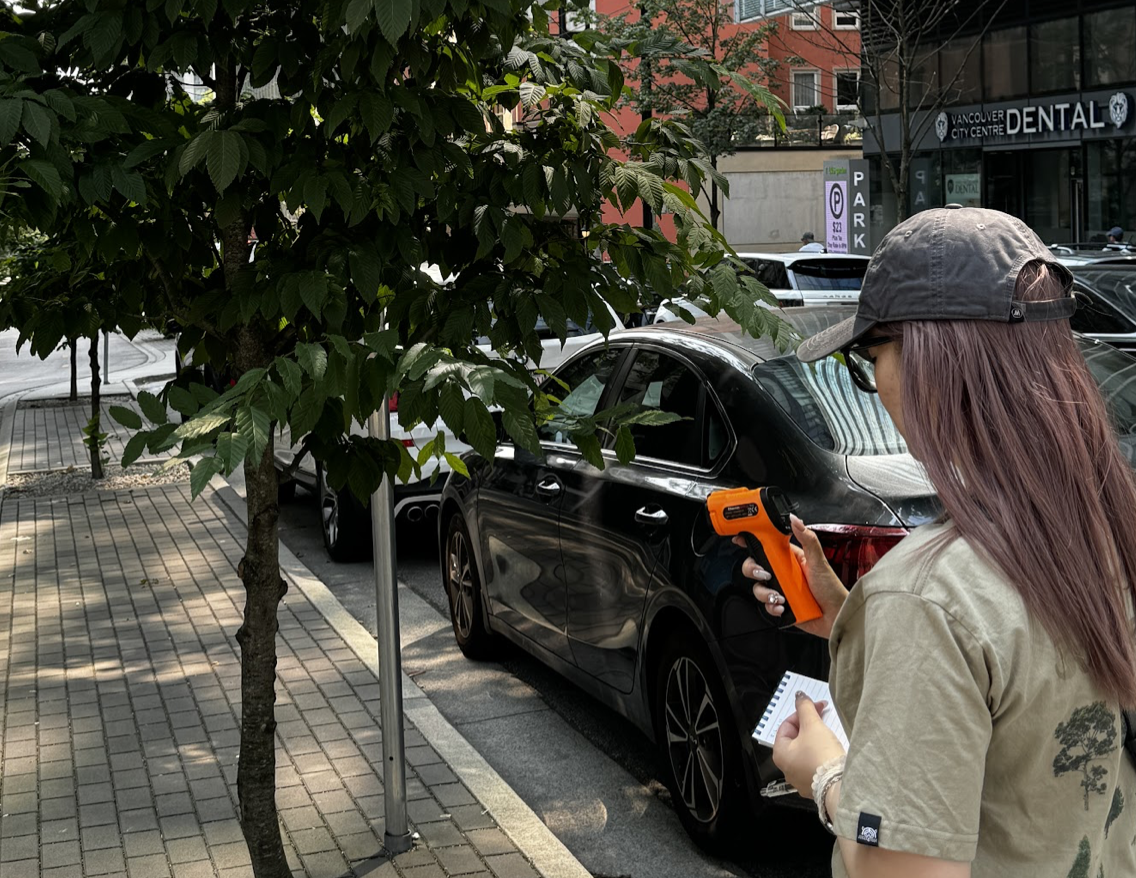From urban cooling with tree trenches to empowering waste-picking communities to energy transformation

Photo courtesy of Esther Zhao.
UVic’s commitment to climate action and research spans 30 years. This year, UVic is ranked second in Canada for supporting the United Nations Sustainable Development Goal 13 which is to “take urgent action to combat climate change and its impacts.”
The following are three initiatives by UVic faculty contributing to this goal.
Cooling cities with rainwater tree trenches
Dr. Caterina Valeo is a mechanical engineering professor at UVic who has been working closely with UVic, UCalgary, and the City of Vancouver to develop cooling strategies to lessen the urban heat island effect. This effect develops in urban areas where buildings, roads, and other infrastructure re-emits the sun’s heat, making these areas experience higher temperatures.
One of the strategies to combat the island effect is to create cooler microclimates, with the aid of urban forests and Rainwater Tree Trenches (RTTs) — engineered landscapes that capture and filter stormwater, which provides a space for trees to grow, making neighborhoods greener and cooler.
“We developed a proposal that looks at how to optimally design and place RTTs in Vancouver in order to mitigate the urban heat island effect in future climates,” said Valeo in an emailed statement to the Martlet. The research is still in development, but Valeo is eager to finesse the methodology that “could be used by other cities to design their urban forest using RTTs to maximize their ecosystem service.” As the project moves forward, we might see a change in public policy and urban planning — one where, in Valeo’s words, “RTTs, or at least the city’s urban forest, is considered an essential, integral and vital part of a city’s urban infrastructure.”
Unicata — Empowering waste pickers in Brazil
Another example of unique climate leadership at UVic is Dr. Jutta Gutberlet’s work with marginalized communities in Brazil. Gutberlet is a professor in the Department of Geography, as well as the creator and director of the Community-Based Research Laboratory (CBRL). The most recent CBRL initiative is Unicata, an innovative university program offering education, networking opportunities, and university-level credentials to help waste pickers advance their careers and increase their impacts in the industry.
Waste picking refers to the activity of salvaging recyclable and reusable materials from spaces where they have not been separated, such as landfills. This activity has been often stigmatized, and associated with poverty and social exclusion.
“At Unicata, we challenge this stigma by reframing waste pickers as environmental stewards rather than societal outcasts,” said Gutberlet in an email to the Martlet.
Waste pickers play a significant role in combating climate change because they offer recycled goods, lowering the demand for raw material extraction, and reducing the amount of waste that ends in landfills. Unicata, which currently operates in São Paulo and Brasilia, has given waste pickers a platform and resources to advocate for their rights. “By integrating [waste pickers] into formal waste management structures,” said Gutberlet, “we not only improve the sustainability of urban environments but also foster a more inclusive approach to climate action.”
“Through education, advocacy, and collaboration,” said Gutberlet, “Unicata seeks to create a more equitable and sustainable future.”
Community-driven energy solutions — the ACET initiative
Accelerating Community Energy Transformation (ACET) is a national, multi-partner initiative that focuses on developing renewable energy projects tailored to the specific needs of local communities. Dr. Curran Crawford, a professor of mechanical engineering and the executive director of ACET, advocates for climate action through community-led energy solutions.
“Universities are often misunderstood as ivory towers only interested in esoteric theoretical research,” said Crawford in a 2022 Q&A, “[but] this could not be further from the truth.”
The ACET team has been working for over 15 years with over 40 partners to create tailored projects by assessing an organization’s unique energy needs and potential for renewable energy generation such as solar, wind, or bioenergy. This bottom-up approach allows communities to produce their own energy and be more self-sufficient, ultimately coming closer to achieving net zero.
The needs of every community are unique, but their vision should be the same: to create a sustainable future where the impacts of climate change can be reduced or reversed. ACET is working to help communities achieve that vision.
This innovative work emphasizes UVic faculty’s commitment to creating climate solutions that are effective, inclusive, and scalable. Combining academic research with community partnerships shows a holistic and human approach to combating climate change that can be adapted and implemented globally. From cooling urban spaces, to reducing stigma and promoting community energy independence, UVic’s faculty are at the forefront of climate innovation, demonstrating how universities can be powerful agents of change in the global climate movement.







